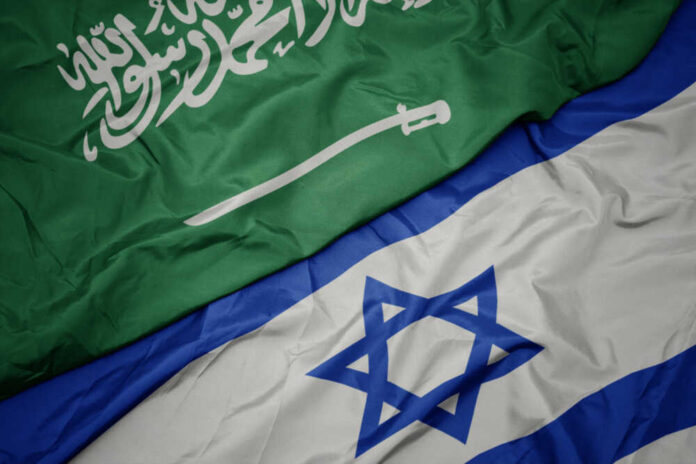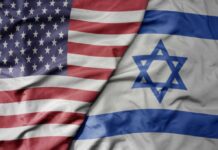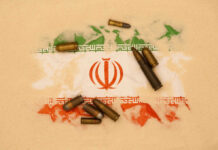
The White House announced last week that it had the general framework of a potential peace deal between Israel and Saudi Arabia, which would be the first time the two nations formally acknowledged each other. The peace deal comes in the shadow of former President Trump’s Abraham Accords, which saw a number of Middle Eastern states normalize relations with Israel.
Currently, Saudi Arabia does not recognize the state of Israel. The two nations appear to have had clandestine meetings in the past but have not formally acknowledged most contact.
However, that appears to be on the brink of changing.
White House National Security Council spokesman John Kirby said this week that both nations have “hammered out, I think, a basic framework for what we might be able to drive at.”
“We are at the cusp of a historic peace between Israel 🇮🇱 and Saudi Arabia 🇸🇦… between Jerusalem and Mecca… between the descendants of Isaac and Ishmael.” – @IsraeliPM #MBS pic.twitter.com/oxpkMZacom
— Avi Kaner ابراهيم אבי (@AviKaner) September 22, 2023
Israeli Tourism Minister Haim Katz said that there has been some progress, calling it a “crack in the wall.”
Israel and Saudi Arabia do have several elements in common. Both are allies of the United States and enjoy positive relations with Egypt. Both have generally stood against the rule of Syrian leader Bashar al-Assad during that country’s civil war.
Furthermore, the two nations each have the same potential rival. Both Israel and Saudi Arabia oppose the influence of the Islamic Republic of Iran. However, Saudi Arabia has begun to improve relations with Tehran in the last year.
However, Israel remains staunchly against the prospect of Iran building nuclear weapons. Israeli Prime Minister Benjamin Netanyahu has described a potential Iranian nuclear weapon as an existential threat to Jerusalem.
Saudi Crown Prince Mohammed bin Salman has previously stated that if Iran developed nuclear weapons, then Saudi Arabia would, as well.
Kirby specifically cited Iran as one of the factors in the ongoing negotiations.
The potential success of warming relations between Israel and Saudi Arabia comes on the heels of a string of normalizations led by the Trump administration via the Abraham Accords. In the past seven years, Israel has signed diplomatic normalization deals with Bahrain, Morocco, Sudan and the United Arab Emirates.










